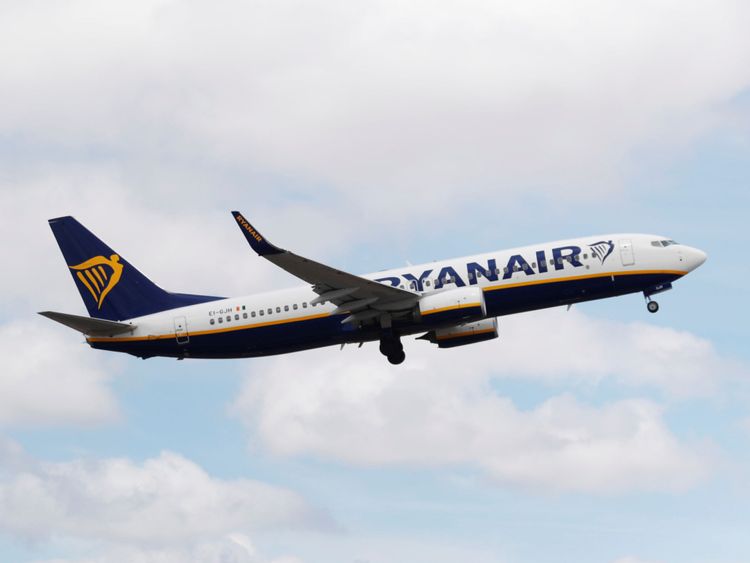Ryanair is on a collision course with the airline’s UK regulator over its decision to reject compensation claims amid a pilots’ strike.
The low-cost airline is claiming it does not need to compensate customers as it cancels hundreds of flights due to a strike by pilots and cabin crew across Europe.
More than 600 flights were cancelled on Wednesday and Thursday as cabin crews in Belgium, Spain and Portugal went on strike over pay and conditions.
The carrier is also facing more strikes by its Irish pilots over similar concerns. It threatened to cut 300 jobs among its Irish pilots and crews after they staged a third 24-hour strike on Tuesday.
More than 100,000 customers who have been affected have been offered other flights or received refunds.
A spokesperson for the Irish carrier said: “Ryanair fully complies with all EU261 legislation, however as these flight cancellations were caused by extraordinary circumstances, no compensation is due.
“Under EU261 legislation, no compensation is payable when the union is acting unreasonably and totally beyond the airline’s control.”
However, the Civil Aviation Authority said passengers “have the right to seek compensation under EU legislation when flights are delayed by three hours or more, cancelled or when they are denied boarding.”
It added: “We note that the recent industrial action is not by Ryanair’s UK employees, but it is the view of the UK Civil Aviation Authority, taking account of previous court rulings, that when a flight cancellation is caused by strike action by the airline’s employees, the airline is required to pay compensation to passengers in respect of the cancellation of the flight, if it has not warned passengers of the cancellation at least two weeks prior to the scheduled time of departure.”
EU law states passengers can expect €250 in compensation, on top of a refund or new flight, when short-haul flights are cancelled.
Under EU regulation 261, airlines can avoid payouts if the cancellation is beyond their control. These “extraordinary circumstances” can include air traffic controllers’ strikes and extreme weather conditions.
Europe’s top court ruled in April that airlines have to pay compensation for delays caused by wildcat strikes that result from management decisions.
German airline TUIFly had argued a 2016 wildcat strike, where staff called in sick in a dispute about the reorganisation of the airline, was an extraordinary event as it was not initiated by a trade union. The court disagreed.
Passengers can expect more strikes as Ryanair’s pilots in Ireland plan to strike on 3 August.
The airline said the Forsa union, which represents the pilots, rejected its offer to meet to discuss job cuts and it expects to cancel 20 of its 290 Irish flights next week.
It’s not the first time the CAA and Ryanair have clashed. Last year, Ryanair faced “enforcement action” for failing to give customers accurate information about their rights following hundreds of flight cancellations.
The airline cancelled flights, affecting more than 700,000 passengers, after a pilot rota blunder.
From – SkyNews


